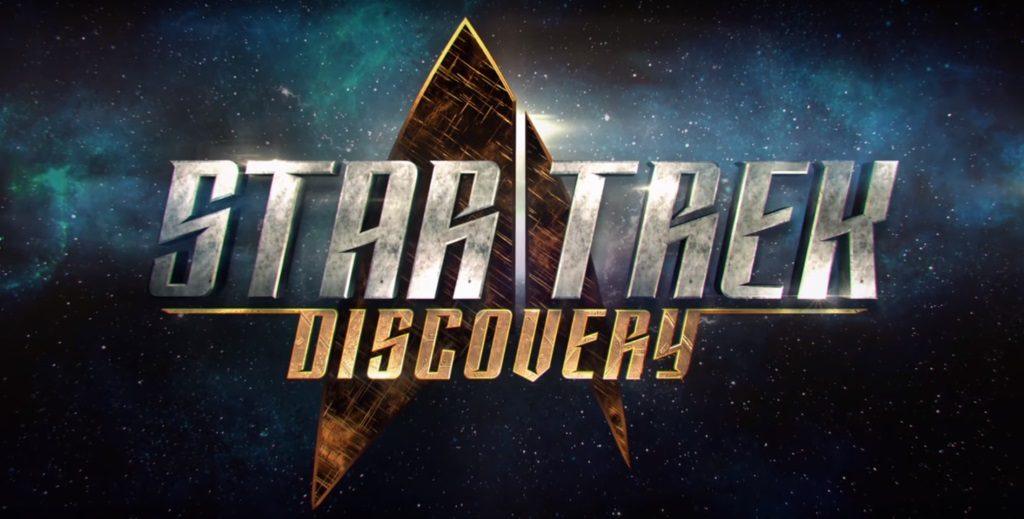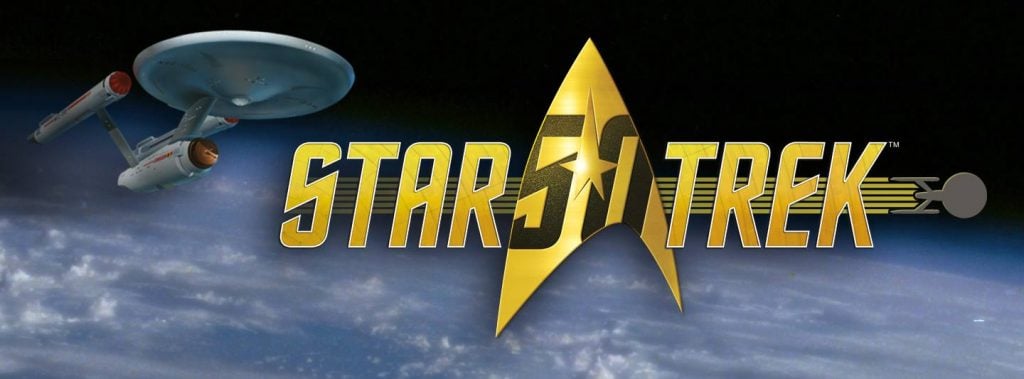
Throughout the show’s protracted development, my attitude toward ‘Star Trek: Discovery’ has been one of cautious optimism. As a lifelong ‘Star Trek’ fan, I want the show to be good. That’s a given, but one that is all the more important, coming as the show does a decade after the cancellation of ‘Star Trek: Enterprise’. That’s not just because it’s been a decade without a ‘Star Trek’ series, but because it’s been a decade in which the only new ‘Trek’ productions have been a series of movies that have proven rather divisive among the franchise’s fanbase, to say the least (for the record, I’m firmly in the camp that doesn’t care for them).
With that in mind, maybe you can see why I get sometimes get nervous about the new show’s prospects. While ‘Star Trek: Discovery’ is by and large shaping up to be a promising entry in the ‘Star Trek’ canon, there have nonetheless been announcements and rumors alike that have given me cause to wonder if something might be rotten in the state of Denmark. One of those was the early announcement that ‘Discovery’ would air exclusively through the CBS All Access streaming service. While I admittedly haven’t been as bothered by that as some, it was nonetheless a “What are you thinking?” moment. Well in a recent interview with the Recode Media podcast, CBS Interactive CEO Jim Lanzone gave us a glimpse into the mindset behind that decision. The subject was broached when Lanzone hinted at the freedom from broadcast standards, suggesting that ‘ Discovery’ could include nudity and “whatever future swearing, 300 years in the future, would be”. Because those are the first things I think of when I think of ‘Star Trek’. The real kicker, though came when Lanzone made the following comment:
“Sci-fi is not something that has traditionally been done really well on broadcast. It’s not impossible, for the future, if somebody figures it out. And things like ‘Lost’ and ‘Heroes’ have had parts of, you know, sci-fi, but historically, a show like ‘Star Trek’ wouldn’t necessarily be a broadcast show, at this point. And so, you kind of look at the other networks we have, CW and Showtime, it just fits with the digital audience and having that digital ‘Star Trek’ audience.”
Right. Okay then.

So where do we begin? I’ll go out on a limb and assume Lanzone was talking specifically about broadcast networks, leaving cable (where many of the best sci-fi shows – indeed, many of the best shows overall – in the recent past have flourished) out of the conversation. And to be fair, the broadcast networks aren’t what they used to be. And we could all name a dozen sci-fi shows that met an untimely end on network television. But the thing is, as often as not, those shows tend to be victims of inept or outright hostile network heads (case in point, virtually any genre show that’s aired on Fox in the last fifteen years). The original ‘Star Trek’ was itself was cancelled in no small part due to a hostile network.
But that’s ignoring the history of successful network sci-fi. Lanzone himself makes specific mention of the CW, a network that whose primetime lineup is almost entirely built on genre shows, and also name checks mega-hits like ‘Heroes‘ and ‘Lost‘. There’s also a little show called ‘The X-Files‘ that was one of the biggest hits of the ’90s.
But we can also keep this a bit closer to home. After all, ‘Star Trek’ itself was once so successful on the broadcast networks that Paramount decided that they needed a new ‘Star Trek’ spinoff (‘Star Trek: Voyager’, to be precise) to anchor their upstart sixth network, UPN. A network, that, incidentally, ceased to exist a year after ‘Star Trek: Enterprise’ went off the air. Sure, that might well be a coincidence, but as someone who enjoyed ‘Enterprise’, it sure feels good to point it out.
That’s not some minor piece of trivia, incidentally. Though I don’t believe anyone has actually come out and said it, the intent of distributing ‘Star Trek: Discovery’ through CBS All Access is clearly an effort to replicate the success of the ‘Voyager’ model of using a ‘Star Trek’ series to prop up a fledgling network (or streaming service, as the case may be). And say what you will about ‘Voyager’, at least in that regard it was an unqualified success.
But of course, the real issues run deeper than that. I could easily spend hundreds more words (and others no doubt have) pointing out the flaws in Lanzone’s logic, but it would be addressing a symptom while ignoring the disease. The real problem is that CBS and Paramount collectively don’t seem to have any idea what they’re doing with ‘Star Trek’, and this is something that has never been more painfully apparent than in this, the franchise’s fiftieth anniversary year.

To get a idea of what I mean by that, I need to draw a comparison to the fiftieth anniversary of ‘Doctor Who‘ three years ago. In 2013, ‘Doctor Who’ fans were (just off the top of my head) treated to the latter half of the revived series’ seventh season, a Christmas special, the ‘Doctors Revisited’ retrospectives on BBC America, an anniversary special (that received both theatrical screenings and a global simulcast), and the announcement that two classic serials had been recovered. In other words, the BBC made sure that 2013 was wall-to-wall ‘Doctor Who’.
By contrast, CBS and Paramount didn’t even manage to give us wall-to-wall ‘Star Trek’ in September – the anniversary month. Throughout the year, we saw an official convention in New York City, the release of a theatrical film, and a slow trickle of announcements regarding ‘Star Trek: Discovery’, the franchise’s long overdue return to TV.
And it’s that dearth of information that is perhaps most troubling about ‘Discovery’. I said earlier that I want the show to be good, and the majority of what has been announced has been positive. I stand by that. If I’ve come across as negative here, it’s because I can’t help worrying about the mismanagement to which the franchise has been subjected and how that might impact the show. While the earliest premiere date that was announced for the show was for January 2017, I would not at all be surprised if we eventually learned that the original plan was to have the series launch sometime during 2016, perhaps with a fall premiere to better coincide with the fiftieth anniversary. Nor would I be surprised if it turned out that CBS was rushing the show in order to hit that January date. That’s all speculation of course, but as a fan who has followed the development of past ‘Trek’ shows? When both San Diego Comic Con and the anniversary itself came and went without a single casting announcement, I think we all knew that that didn’t bode well for a January premiere. And barely a week after the anniversary, we learned the show had been delayed until May. Hopefully, that delay gives everyone involved the time they need to make ‘Star Trek: Discovery’ every bit as good as it deserves to be.
And for the record, Mr. Lanzone, ‘Star Trek’ is a franchise that has, to date, produced a combined thirty seasons of broadcast television. I don’t know about you, but that sounds pretty successful to me.
